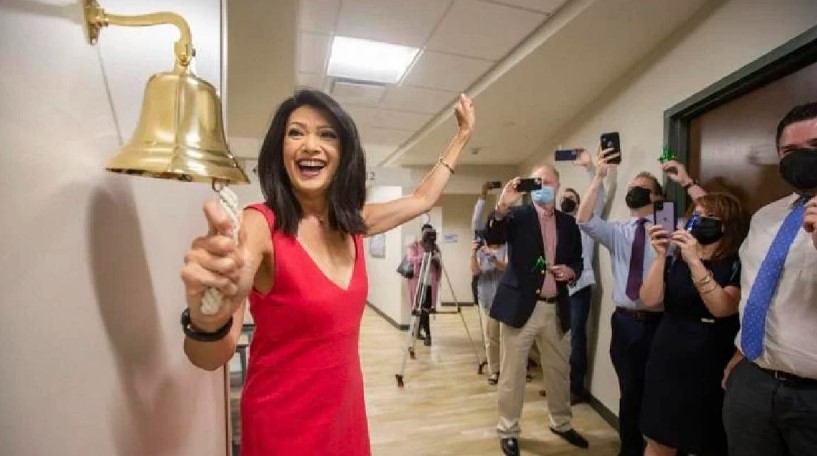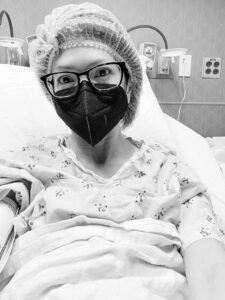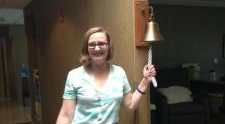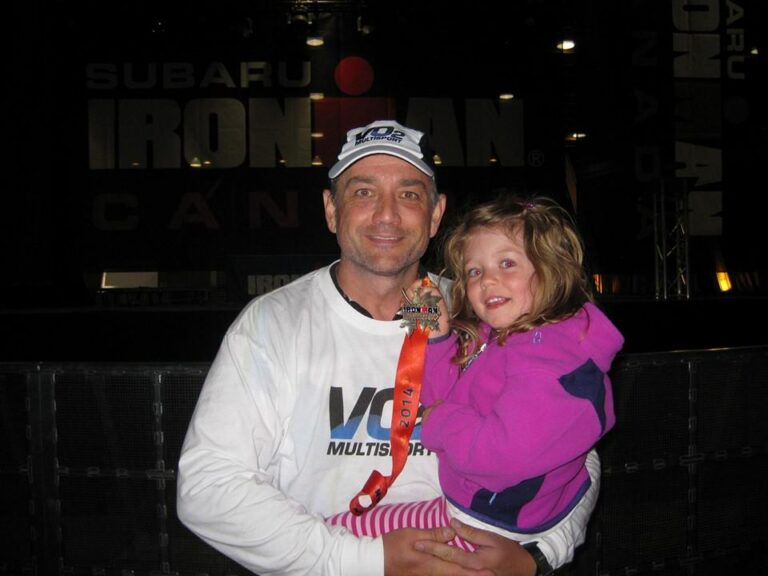
Most people share their cancer diagnosis with just a few of their friends and family.
 I shared mine with tens of thousands of people on TV.
I shared mine with tens of thousands of people on TV.
As a news anchor for WFMY News 2, the essence of my job is to help explain why things are important and how it affects people’s lives. That’s always been my responsibility as a broadcast journalist for more than 20 years. And here I was with no symptoms, no cancer risk factors, no family history, and somehow I was diagnosed with stage IIIa colon cancer. I only caught it through a routine colonoscopy when I turned 50.
I thought, “I feel absolutely fine but I have colon cancer, and a colonoscopy saved me. People need to know about getting screened!” I knew from the beginning that I wouldn’t “waste” my cancer by hiding it or being silent; instead, I would wield my cancer to try and help others.
 In front of the lights, cameras, my coworkers, friends, and thousands of viewers; I shared my news less than one week after diagnosis and explained that I would be taking a medical leave while I underwent resection surgery and recovery. But I also explained how I had no family history, and felt fine. I urged people to get that colonoscopy they’d been putting off, or to at least start screening at 45. My medical leave turned from weeks to months when my pathology report showed cancer invaded some lymph nodes.
In front of the lights, cameras, my coworkers, friends, and thousands of viewers; I shared my news less than one week after diagnosis and explained that I would be taking a medical leave while I underwent resection surgery and recovery. But I also explained how I had no family history, and felt fine. I urged people to get that colonoscopy they’d been putting off, or to at least start screening at 45. My medical leave turned from weeks to months when my pathology report showed cancer invaded some lymph nodes.
Some people get uncomfortable talking about colonoscopies and cancer in their large intestines, but I had a unique platform – and I’m using it! On social media I’ve shared my journey from diagnosis, infusions, chemotherapy, ringing the cancer victory bell to remission. I’m using my battle to normalize scary topics that people don’t want to discuss or think about, because just the act of thinking about it raises awareness that can save lives.
I’ve been very lucky; a year later I’m in remission and on a mission. I’ll be the Master of Ceremonies at this year’s Get Your Rear in Gear – Winston Salem, and I continue to speak, give updates on things like follow up scans, shine light on the treatment process and stress the importance of screenings.
What’s been truly inspiring has been hearing all of the stories from people who’ve heard my story and were persuaded to get checked. I even produced a special about some of these individuals which brought me so much hope and fulfillment. Informing viewers, inspiring change and using myself as a vessel for a bigger message is why I became a journalist; because colon cancer impacts 1 in 24 people, and I’m proud to know I have not wasted my cancer.
GET YOUR REAR IN GEAR - WINSTON SALEM SIGNS & SYMPTOMS GET SCREENED



